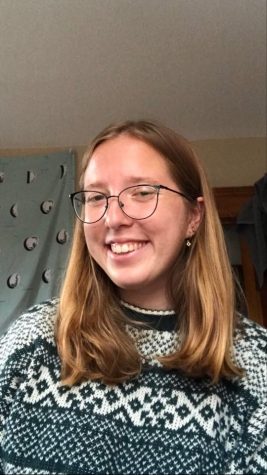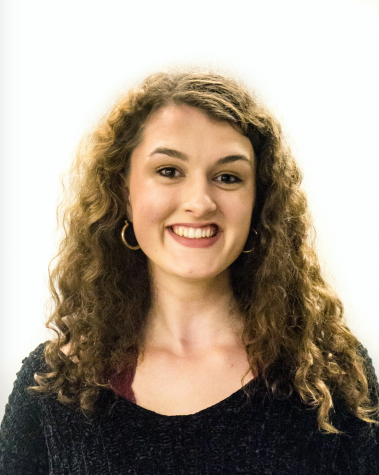Dr Rivera talks coming to Mac, adapting to pandemic
April 10, 2020
In June of this year, Dr. Suzanne Rivera will officially begin her tenure as 17th president of Macalester College, becoming the school’s first woman and first Latinx president. On Tuesday, April 7, 2020, Rivera sat down with News Editor Margaret Moran and Editor-in-Chief Hannah Catlin on Zoom to talk about her transition to the college.
Next week, Rivera will host two Zoom webinars — one for faculty and staff on Tuesday, and one for students on Thursday. Both will take place at noon CDT. More information, including the registration links, will be available in this Friday’s Mac Daily.
The following is a condensed transcript of Rivera’s exclusive first interview since Macalester announced her appointment in January.
The Mac Weekly: When and why did you decide to pursue this role at Macalester and what drew you to the school?
Dr. Suzanne Rivera: I think I was contacted back in August. The search for a presidency is like a very long courtship. It goes over a period of months and it’s both a vetting process for the college to find a leader that’s the right fit for the community, but it’s also an opportunity for the candidate to figure out if the community is the right fit for them and their skills and attributes.
I would say the things that attracted me to the opportunity at Macalester are the college’s deep commitments to social justice and internationalism. These are important to me too. The idea of meaningfully connecting people across the globe for the benefit of everyone everywhere — that idea of global citizenship — really aligns with my own personal values and my lived experience.
TMW: You talked about how the values of the school match with your own lived experience and we know what we’ve learned about you from the promotional videos, but could you talk about that connection between the values of the school and your own values?
SR: Sure. I was born in New York City and raised in an immigrant family in an immigrant neighborhood under difficult circumstances. My family was on public assistance, there was a great deal of hardship.
These experiences created for me a passion around the importance of equity and inclusion. Also… an understanding that national borders don’t define our humanity. [And] a deep appreciation for the value of education in the sense that… education creates a ladder of opportunity for people and that was definitely true for me.
So, Macalester’s values are important to me, personally, because it seems to me that Macalester is a place that affirms the things that are important to me already. When I talk about passion for the importance of equity and inclusion, that’s not a theoretical or philosophical orientation. It’s a deeply-held personal conviction born out of my own experience.
For that reason, when I talk about equity and inclusion I’m not talking about diversity in the sense of numbers of different types of people, I’m talking about the ability of all the members of a community to thrive. What I learned about Macalester through the search process, is this is also the way Macalester thinks about multiculturalism.
TMW: Had you ever heard of Macalester before this past year?
SR: Yes, I had heard of Macalester. I had the privilege of going to a prep school in Massachusetts for high school that is a very artsy, social justice-oriented high school called the Cambridge School of Weston. And it has had a longstanding tradition of sending students to Macalester because my high school’s values are really closely aligned to Macalester’s values. I think people who went to my high school found schools like Macalester attractive because they knew that those were the kinds of places that really celebrate individuality and creativity and — if I can use this word in the most loving way — appreciate quirky, idiosyncratic people who are passionate about making the world a better place.
TMW: Could you take us back to the moment when you heard that you were the person that got the job? What were the things going through your head at the moment?
SR: Of course, I was really happy and excited because by that point I had really come to love Macalester. Through the process of getting to know it, at every opportunity to engage with faculty, students, staff, alumni and trustees, I became more and more convinced that this was a community in which I could thrive and where I could make a contribution. By the time the decision was communicated to me, I was just so thrilled to be given the opportunity, knowing that it would be the adventure of a lifetime.
I would love to tell you that being the president at Macalester was the realization of a lifelong dream for me, but that is not true because I never had the audacity as a child to imagine that I might ever be qualified to be the president of one of the world’s best liberal arts colleges. I did have dreams about going to college, but I didn’t imagine I would be a president at one. But over time, as I have developed expertise as a scholar and also skills as an administrator, I’ve really grown and I have become focused on thinking about the ways that I can contribute in higher education in a leadership role in order to make the transformative experience that I had as an undergraduate available to other people.
TMW: On the subject of the current pandemic situation, how has that changed your current transition plans, have you been in communication with the college more as they are making these on-the-fly decisions about what is going on? How are you preparing to come here just given how different the circumstances are than they were when you heard about the role in January?
SR: President Rosenberg and I have been having weekly phone calls during which he keeps me up to date about decisions that he and the senior leadership team are making. I know that the team has been working hard with a focus on the safety and well-being of the Mac family.
I wouldn’t say that the pandemic is changing my focus in terms of what the search committee and the board told me are the priorities for the college. Those priorities remain unchanged. What has changed is the environment within which we need to work towards those goals. In that regard, Macalester isn’t any different from any other college in the U.S. right now, which is to say we’re all operating in a period of great uncertainty. No matter what goals we set for ourselves, we have to be prepared to operate knowing that pivots may be necessary.
TMW: Are you still preparing to transition this summer? In June, right?
SR: Yeah, I’m planning to arrive in St. Paul in June and that has not changed. And you know, what of course has changed is I was supposed to have visited the campus once in March, once in April, once in May, to make preparations to meet one-on-one with senior leadership, members of the team, to meet with students, to meet with faculty, to meet with staff, to meet with you all in-person. So those plans have had to be adjusted, but I am doing one-on-one Zoom conversations with each of the members of the senior leadership team.
On his behalf, I’m grieving for President Rosenberg because I think that he deserves a different kind of send-off than he is going to get, I’m feeling sad about not being able to visit the campus three or four times before arriving in June, but the circumstances dictate that we make adjustments, and it’s hard to let go of all of the traditions and habits that we expected we were going to be able to count on, so we’re having to call upon our powers of resilience and tenacity and creativity.
TMW: You find yourself in a position of great leadership in a time of great uncertainty. Coming into the school in the fall, what are your goals in terms of what you want students to take away from the example you’re setting and what values and ideas do you want to guide the school with through a time of crisis?
SR: I’m going to answer that in a couple of different ways. No matter what happens, safeguarding the well-being of the Macalester community is going to be my north star when I arrive and start making decisions about a path forward. What is absolutely critical is that we have to be focused on everybody’s well-being, even if it means doing things in a way that we wish we were not doing things right now, I’ve had to convert my courses at Case Western Reserve [University] to online courses just like the faculty at Macalester are doing.
That idea of preparing students for global citizenship, perhaps now more than ever, is absolutely essential and I don’t see any reason to abandon that under these circumstances. We need to figure out how to fully realize our potential under these circumstances, but it’s still a goal. And then of course securing Macalester’s future by being an effective steward of its resources and positioning Macalester to weather the financial challenges that lie ahead.
TMW: What a time to be in bioethics, huh?
SR: It really is. I pine for the days where hypothetical trolley problems were the bulk of our classes. We’re doing real-time bioethics right now.
The Mac Weekly’s in-person interview was limited to 30 minutes. The following are exchanges we had with Rivera over email.
TMW: How has your line of research as a bioethicist influenced how you think about the coronavirus pandemic?
SR: The field of bioethics is concerned with how to make good decisions in difficult circumstances — whether those be uncertainty, scarce resources, structural inequities, technological obstacles, or other problems. This global pandemic has challenged all of us to examine what we mean by “good decisions” in the sense that good could mean limiting personal liberties to save lives or spending money we don’t have to prevent deaths. As a bioethicist, I’m thinking about principles like justice, beneficence, and respect — and how those principles can be maximized while we face some of the most difficult dilemmas any of us could have imagined.
TMW: How do you feel assuming the role as Macalester’s first female president and first Latinx president? Do you have any reflections on this development?
SR: I am deeply moved by the trust that’s been placed in me by the search committee and the Trustees. I also have been made to feel welcome to bring my whole self to campus. Meaning that my skills and knowledge are what qualified me for the job but my personal attributes and experiences are valuable, too. It is a tremendous honor to have the opportunity to join this community and I hope that my being the first woman in the role and the first Latina brings additional dimensions that are helpful and appreciated.
In a Zoom webinar on Thursday, April 9, Macalester President Brian Rosenberg discussed Rivera’s transition to the college. He highlighted that she was in ongoing communication with Macalester’s administration about the college’s response to coronavirus and that all parties are striving for a “seamless” transition.
“I think she is as knowledgeable about where Macalester is right now — what decisions have been made and what decisions lie ahead — as is possible for a human being to be,” Rosenberg said. “It’s a tough situation into which to step as a new college president, but none of us chose this and she seems fully prepared for it.”














